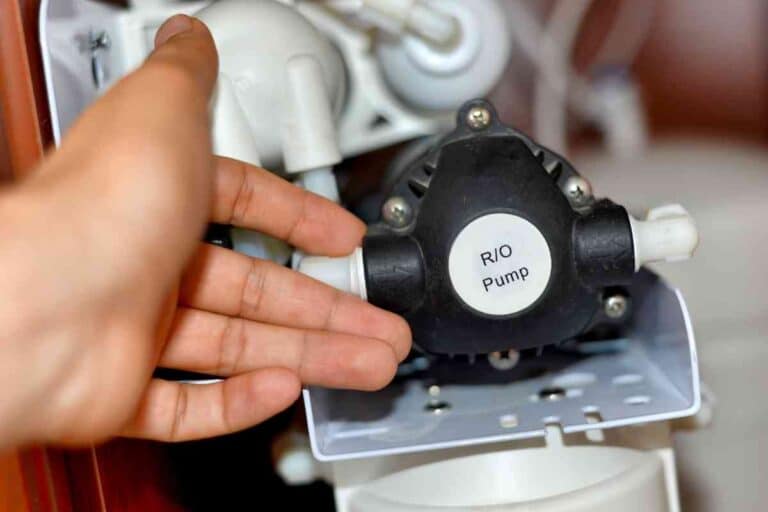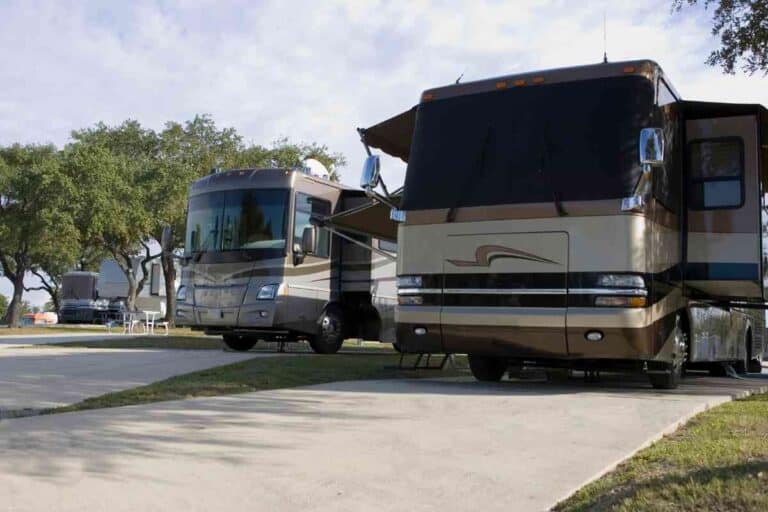Living In a Bus on Your Own Land | Legal and Practical Considerations
With the cost of building materials is on the rise, more and more people have looked at alternative homes – including living in a converted bus on their private lands. Often regarded as a Skoolie, the idea of living in a converted school bus (or any other bus) may sound cool, especially when you’re in search of a small home and you already own some land to utilize.
But before you head out to buy a bus on a whim today, perhaps it may be a good idea to stop a while to think if this is legal in your state. So, is it legal to live in a bus even if it’s parked on your own land?
In short, it’s only illegal to live in a bus on your own land if it’s been registered wrongly. In many states, you’ll first have to register your bus as an RV to live in it legally. This, however, would mean you have to turn your bus into an RV – complete with a sleep space, proper plumbing, and have the seats of the bus removed.
So, how do you turn living in your bus from illegal to legal? Here’s how.
Living In a Bus – Is It Legal?
As a rule of thumb, you will first have to register your bus as an RV if you wish to live in it legally, even if it’s parked on your own land.
Most local offices may send a staff member to inspect your skoolie to ensure it fits the description of an RV with details such as seats in the bus removed, proper plumbing, and designated sleep areas as key. Failure to comply would make living in a bus illegal, even if it’s parked in your own land.
Insuring a Converted Bus
This, however, would also affect how your insurance coverage will come to play. Typically, insurance companies will only cover your skoolie as an RV since it has been registered as such.
In some cases, insurance companies may even offer you liability insurance instead of comprehensive home insurance due to your skoolie’s registration.
Can My Bus Be Yellow?
A lesser-known legal consideration is the color of your bus. Some states (such as Michigan) impose a rule that private busses cannot be of certain colors or retain the words “school bus” on it. This is to avoid school-going children from mistaking your home for the actual bus.
Thus, if your bus is painted in a bright yellow, you may have to paint over it before your skoolie becomes legal.
No Need for Commercial Driver’s License
Surprisingly, you wouldn’t need a commercial driver’s license to move your bus about if you’ve converted it into your home. This is as you don’t need special licenses to drive an RV, making it legal for you to drive your converted bus even without a commercial driver’s license.
Check with the Zoning Authorities
While these may be the general rules to turn living in a bus legal, it would still be best to check in with your local city zoning authorities if you wish to park your bus on your land. By doing so, you’ll save yourself the headache of any possible run-ins with the authorities after you’ve moved in. After all, the last thing you’ll want to do after setting up your home in a bus is to remove it for legal reasons later.
4 Practical Things to Consider Before Moving Into a Bus
So, if you’re still interested in living in a bus after going through the boring parts of making it legal, then perhaps it would be good to also put some practical thoughts into it.
Unlike a brick and mortar home, there are plenty of considerations that you may have to plan out if you’d like to live in a bus. Here are 4 practical things to consider before you start packing your belongings.
Storage and other space concerns
While this may be an obvious thing to think of, many skoolie owners may have underestimated how much you’ll have to downsize when you first move in to live in a bus.
From storage space to space for your appliances and water or heater tanks, these are things you must be ready for if you wish to live in a bus. When planning your move into a bus, it may be a good idea to look for multi-purpose furniture like a Murphy bed or foldaway tables to save precious space.
Utilities
Concerns such as electricity and water – whether for consumption or shower – should also be put in place before you decide to move into a bus. For instance, you’ll have to think about where you’ll get your water supply.
Unlike regular homes, a skoolie may not grant you direct access to water pipes, so you may have to attach a separate water pump and filtration system to get clean, usable water.
You’ll also have to ensure you have a good electricity source so you can power up your new “home”. Many skoolie owners have since opted for solar power to keep their buses running, but you’ll want to know how many appliances you want working in your bus.
Appliances
As we’ve mentioned about utilities, let’s also speak about the practicality of appliances in your bus. When living in a bus, it’s unavoidable to make appliance sacrifices to fit your space and electricity or water concerns.
You’ll have to be sure you’re comfortable with losing an appliance or two when moving into the bus, so you’ll want to ask yourself if you’ll be okay without a dishwasher or full-sized oven before making a firm decision.
If you’re looking to add extra appliances like a TV to play video games on, be sure to pick a unit that is energy efficient to keep power consumption to a minimum.
Plumbing
Finally, the practicality of your plumbing system should also come into play to help you consider if living in a bus is right for you. With selections like a traditional RV toilet or composting toilet, it’s important to pick the right plumbing systems to fit your lifestyle.
For instance, traditional RV toilets may feature an extra black tank where your waste is collected, so you’ll need the extra space for the tank. You’ll also need to find areas to legally empty your waste tank, but it will save you time from having to empty the tank frequently.
On the flip side, modern composting toilets may accelerate the process of your feces decomposing, so you’ll have to clear it out more often. This, however, also means you won’t have to make space for a large waste tank and if you think about it – may be more hygienic since you’re emptying your waste more often.
In Summary
In conclusion, the decision of living in a bus may seem overwhelming in the beginning, but I’m sure nothing will hold you back once you’ve set your mind to it.
While there are some minor fallbacks to living a skoolie, you’ll also find various positive points like the adventures you can take if you decide to travel in the bus and the money you’ll save from home maintenance and mortgage payments.






